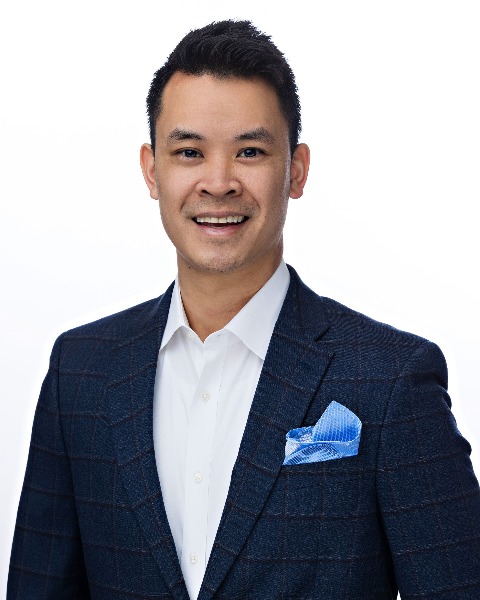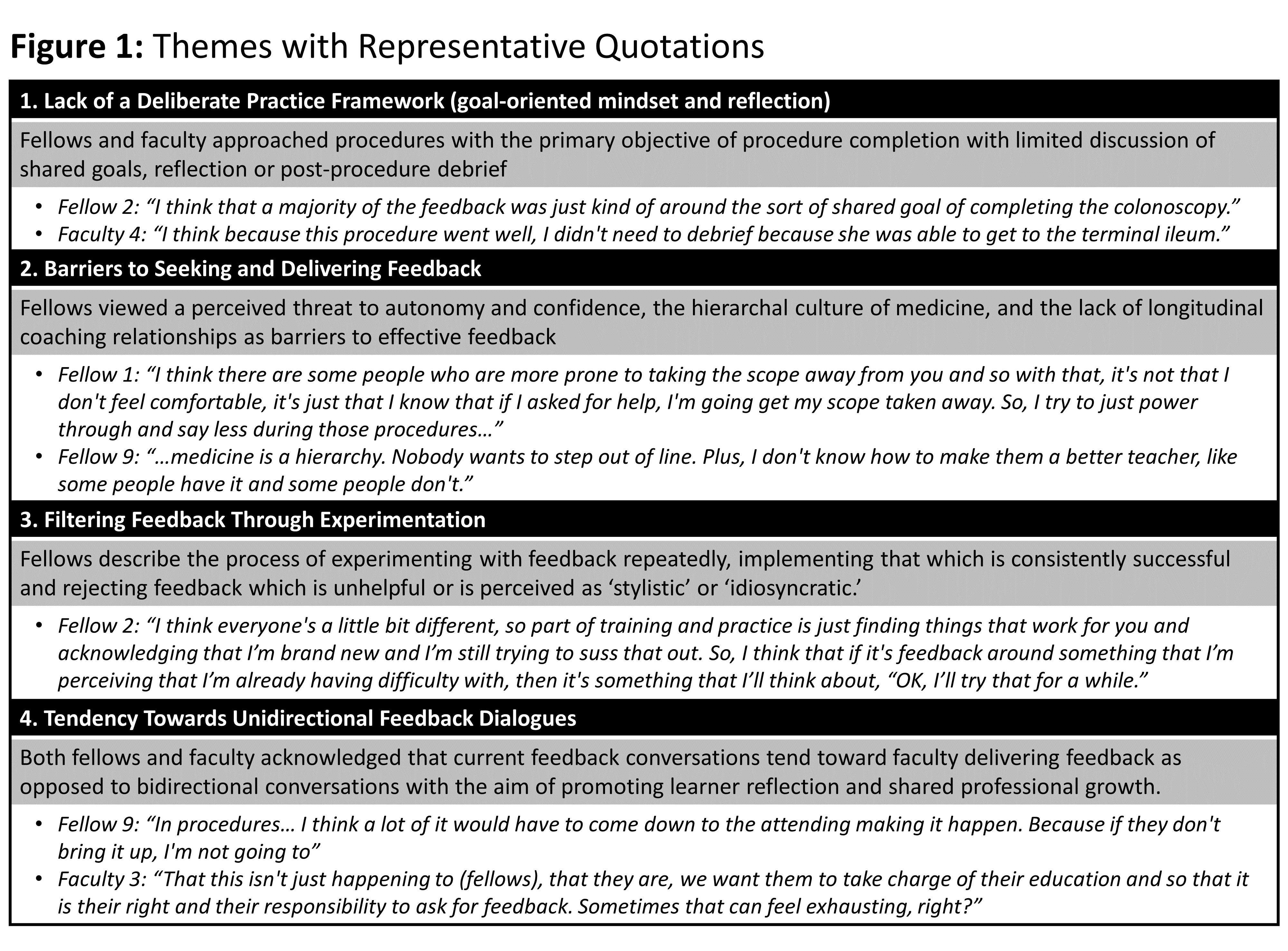Medical Education: Fellow
Category: Abstract Submission
Medical Education 3 - Medical Education: Fellow I
582 - Feedback in Endoscopy Education: Describing Barriers, Attitudes, Context and Knowledge (FEEDBACK): A qualitative study of pediatric gastroenterology trainees and faculty
Friday, April 22, 2022
6:15 PM - 8:45 PM US MT
Poster Number: 582
Publication Number: 582.117
Publication Number: 582.117
Paul Tran, Children's Hospital Colorado, Denver, CO, United States; Sheilah Jimenez, University of Colorado Anschutz, Littleton, CO, United States; Taylor Montminy, Children's Hospital Colorado, Denver, CO, United States; Cassie Burley, Children's Hospital Colorado, Denver, CO, United States; Jacob A. Mark, Children's hospital colorado, Aurora, CO, United States; Robert E. Kramer, University of Colorado, Aurora, CO, United States; Catharine M. Walsh, The Hospital for Sick Children, Toronto, ON, Canada

Paul Tran, MD
Fellow
Children's Hospital Colorado
Denver, Colorado, United States
Presenting Author(s)
Background: Effective feedback is critical for GI fellows developing endoscopy skills. Recent frameworks of effective feedback have shifted away from a unidirectional model emphasizing feedback delivery towards a bidirectional dialogue between participants. Few studies describe feedback conversations and application within the context of procedural education. This study sought to explore the current practice and perceptions of feedback, during endoscopy education, in a large pediatric GI fellowship program.
Objective: Describe faculty and trainees’ experience of feedback interactions when performing colonoscopy and explore how these shape trainees’ approaches to seeking, interpreting, and implementing feedback as a tool for learning.
Design/Methods: This was a multi-phased qualitative study. In a tertiary care pediatric endoscopy unit, dyads of faculty and pediatric GI fellows were observed supervising and performing a colonoscopy. Observations of feedback interactions were captured with field notes and video recording. After each session, semi-structured one-on-one interviews were completed with fellows and faculty, using an interview guide based on current literature to elicit perceptions of feedback experiences. Audio recordings of the interviews were transcribed and anonymized. Transcripts were analyzed using an iterative content analysis approach to generate an explanatory framework and themes. Observations and interviews were conducted until theoretical saturation, the point with no new emergent themes.
Results: Over 20 hours of observations were conducted in 9 endoscopy sessions and 18 interviews (9 fellows and 9 faculty). Few observed sessions had pre-procedure goal-setting or post-procedure debriefing. Preliminary thematic analysis identified 35 factors grouped into 4 broad categories: lack of a deliberate practice framework (goal-oriented mindset and reflection), barriers to seeking and delivering feedback, filtering feedback through experimentation, and tendency towards unidirectional dialogues.Conclusion(s): Preliminary data reveals that the practice and perceptions of feedback during endoscopy teaching encounters do not reflect current feedback frameworks which emphasize mutual negotiation of goals and self-reflection. These results highlight the need to improve feedback literacy, address barriers to effective feedback conversations, and promote a culture of bidirectional feedback. The findings of this study will hopefully help to inform proper implementation of relationship-building, deliberate practice and bidirectional feedback within endoscopy, and broadly procedural education.
Themes with Representative Quotations In preliminary analysis, the following four themes have emerged with elaboration and representative quotations listed.
In preliminary analysis, the following four themes have emerged with elaboration and representative quotations listed.
Objective: Describe faculty and trainees’ experience of feedback interactions when performing colonoscopy and explore how these shape trainees’ approaches to seeking, interpreting, and implementing feedback as a tool for learning.
Design/Methods: This was a multi-phased qualitative study. In a tertiary care pediatric endoscopy unit, dyads of faculty and pediatric GI fellows were observed supervising and performing a colonoscopy. Observations of feedback interactions were captured with field notes and video recording. After each session, semi-structured one-on-one interviews were completed with fellows and faculty, using an interview guide based on current literature to elicit perceptions of feedback experiences. Audio recordings of the interviews were transcribed and anonymized. Transcripts were analyzed using an iterative content analysis approach to generate an explanatory framework and themes. Observations and interviews were conducted until theoretical saturation, the point with no new emergent themes.
Results: Over 20 hours of observations were conducted in 9 endoscopy sessions and 18 interviews (9 fellows and 9 faculty). Few observed sessions had pre-procedure goal-setting or post-procedure debriefing. Preliminary thematic analysis identified 35 factors grouped into 4 broad categories: lack of a deliberate practice framework (goal-oriented mindset and reflection), barriers to seeking and delivering feedback, filtering feedback through experimentation, and tendency towards unidirectional dialogues.Conclusion(s): Preliminary data reveals that the practice and perceptions of feedback during endoscopy teaching encounters do not reflect current feedback frameworks which emphasize mutual negotiation of goals and self-reflection. These results highlight the need to improve feedback literacy, address barriers to effective feedback conversations, and promote a culture of bidirectional feedback. The findings of this study will hopefully help to inform proper implementation of relationship-building, deliberate practice and bidirectional feedback within endoscopy, and broadly procedural education.
Themes with Representative Quotations
 In preliminary analysis, the following four themes have emerged with elaboration and representative quotations listed.
In preliminary analysis, the following four themes have emerged with elaboration and representative quotations listed.